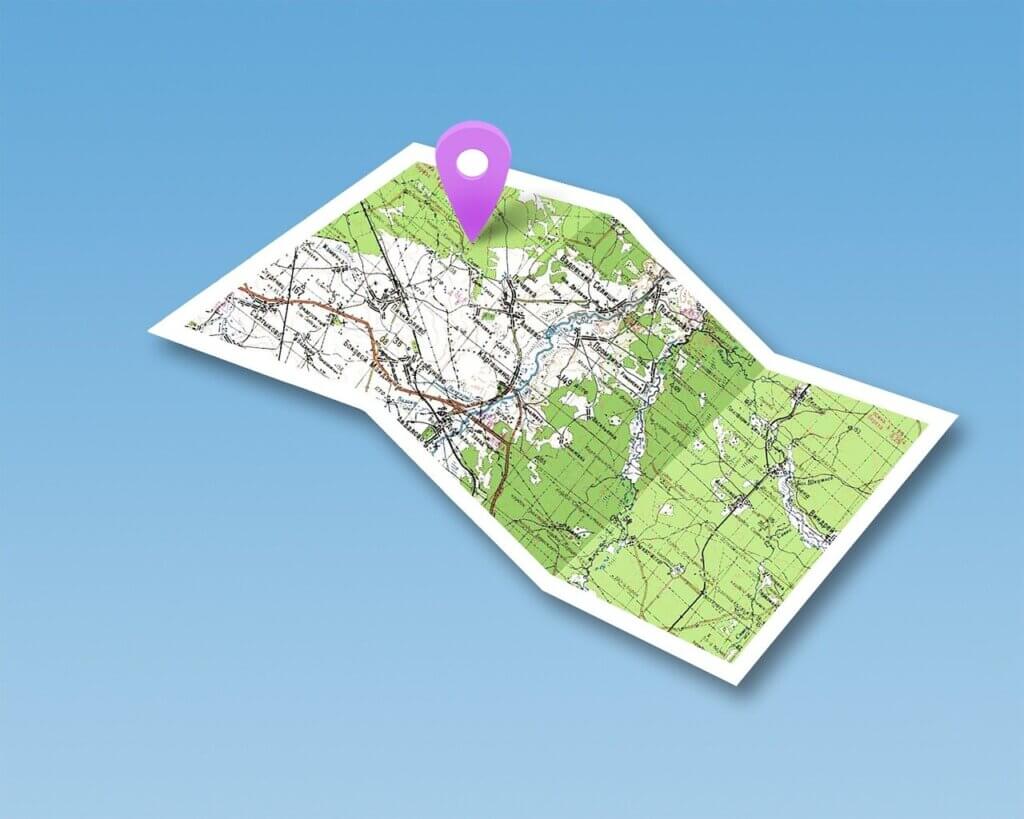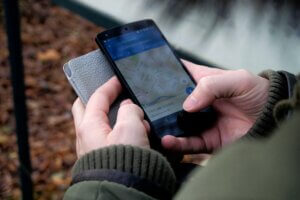The Role of Geolocation Services in Mobile App Development: A Strategic Advantage
June 18, 2024 - 14 minutes readAfter reading this article, you’ll:
- Understand what geolocation services are, the different technologies used to enable them (like GPS, Wi-Fi, cell towers, and Bluetooth beacons), and how they allow mobile apps to identify and leverage a device’s real-world geographic location.
- Learn about the benefits geolocation provides to mobile apps, such as enhanced user experiences through location-based personalization, improved navigation and mapping, increased user engagement, and enabling advanced capabilities across diverse app categories like social media, retail, travel, healthcare, and more.
- Gain insights into best practices for implementing geolocation in mobile apps, including choosing the right location technology, asking for user consent, optimizing for accuracy and battery efficiency, and addressing challenges around privacy concerns and cross-platform development.

Geolocation services refer to technologies that enable mobile devices such as smartphones to identify and provide the geographic location of the device. With the widespread adoption of smartphones and mobile apps, geolocation capabilities have become an integral part of the mobile experience for users. According to a report from Boston Consulting Group, 95% of business executives surveyed said that mapping and geospatial data play an important role in achieving desired business outcomes.
The inclusion of geolocation services in mobile apps provides strategic advantages and opens up possibilities for enhanced user experiences. Apps in categories like social media, transportation, travel, real estate, and delivery rely extensively on geolocation data to provide relevant functionalities. Popular examples include ridesharing apps like Uber and Lyft, social media platforms like Facebook and Snapchat, food delivery services like Grubhub and DoorDash, and travel apps like Google Maps.
By leveraging the location of users, these apps are able to enable targeted advertising, provide more customized and contextual recommendations, improve navigation, and offer many other location-aware features. As such, integrating geolocation services into mobile apps has become a key priority for developers to create more intelligent, useful and engaging mobile solutions.
Understanding Geolocation Services
 Geolocation services refer to technologies that enable identifying the real-world geographic location of a mobile device. It works by using signals from cellular networks, Wi-Fi networks, GPS satellites and Bluetooth beacons to determine the precise or approximate location of a smartphone, tablet or wearable device.
Geolocation services refer to technologies that enable identifying the real-world geographic location of a mobile device. It works by using signals from cellular networks, Wi-Fi networks, GPS satellites and Bluetooth beacons to determine the precise or approximate location of a smartphone, tablet or wearable device.
To enable geolocation in mobile apps, devices have in-built hardware like GPS chips, Wi-Fi adapters, cellular transceivers and Bluetooth to transmit locational data. Mobile operating systems also provide geolocation APIs and frameworks like CoreLocation (iOS) and LocationManager (Android) to request, retrieve, and process this location data for use within mobile apps. App developers can leverage these to integrate highly functional and accurate geolocation services. The choice depends on required accuracy levels, battery consumption, and mobile context.
Types of Geolocation Services
There are several technologies used to enable location services and geolocation capabilities in mobile apps:
GPS (Global Positioning System)
GPS satellites provide the most common and accurate outdoor geolocation. It works by triangulating a signal from multiple satellites to pinpoint a user’s precise latitude, longitude and elevation. GPS accuracy can be within 5-10 meters.
Wi-Fi-based Geolocation
Wi-Fi based geolocation uses databases and known Wi-Fi hotspot locations to approximate a device’s location, typically accurate to 30-500 meter radius. It works indoors where GPS may lack in accuracy.
Cell ID-based Geolocation
By identifying the nearest cell tower a mobile device is connected to, cell ID methods can determine a coarse approximation of location, with an accuracy of up to a few kilometers.
Beacons and Bluetooth Low Energy (BLE)
Bluetooth beacons transmit Bluetooth signals to enable proximity detection and indoor positioning. Apps can detect beacons for precision indoor navigation, proximity-based notifications, and location-aware experiences.
Hybrid Approaches
Hybrid approaches combine multiple signals like GPS, Wi-Fi networks, cell towers and beacons to capitalize on the strengths of each technology for better overall accuracy across different mobility contexts.
By leveraging these location-determining technologies, mobile apps can enable a variety of geolocation capabilities to create richer, more intelligent user experiences. The choice depends on the use case, required accuracy, and mobility context.
Benefits of Geolocation Services
Geolocation technology offers various benefits that enhance the capabilities and utility of mobile apps. Some key advantages include:
Enhanced User Experience
Incorporating geolocation allows apps to customize content and experiences to a user’s location, providing more relevant information and recommendations. For example, a weather app can automatically show conditions for the user’s city.
Targeted Marketing and Advertising
Geotargeting unlocks more personalized and contextually relevant advertising based on location data. According to Amazon, 89% of marketers report increased sales from location-based ads compared to non-location-based ads.
Improved Navigation and Mapping
Apps like Google Maps leverage geolocation to provide real-time navigation guidance, location tracking, and location search capabilities, improving utility.
Increased Engagement and Retention
Location-aware features like check-ins, proximity-based notifications, and geo-tagged content can improve user engagement with apps.
Enhanced Security and Safety Features
Geolocation enables security features like geo-fences, location-based access controls, and location tracking to prevent fraud, secure access, and enable safety features.
Integrating geolocation services enhances the overall mobile app experience while opening up new opportunities to increase value and engagement through customization, targeted advertising, and advanced location-aware features.
Applications of Geolocation Services
 Geolocation technology has unlocked a myriad of beneficial location-aware capabilities across several mobile app categories:
Geolocation technology has unlocked a myriad of beneficial location-aware capabilities across several mobile app categories:
Location-Based Services (LBS)
LBS apps like Foursquare leverage geolocation to enable check-ins to venues, location reviews and tips, proximity notifications, and geo-targeted content discovery.
Social Media and Networking
Apps like Facebook and Snapchat use geotagging and location stickers to add interactivity. Users can tag locations, view nearby events/friends, and enrich media with location context.
Gaming and Entertainment
Games like Pokémon Go create immersive location-based AR gameplay mechanics. Entertainment apps connect users to local events and venues based on preferences.
E-Commerce and Retail
Retail apps enhance in-store shopping via navigation, proximity notifications for deals, easier checkout with location verification, and location-based product recommendations.
Healthcare and Fitness
Health apps use geolocation for mapping fitness routes, tracking distance covered, and powering location-based health studies and interventions.
Travel and Tourism
Travel apps excel at leveraging geolocation for maps, attractions, transportation options, and personalized recommendations during vacations and business trips.
Geolocation proves versatile across use cases, unlocking more intelligent, customized and engaging contextually-aware mobile app experiences.
Implementing Geolocation Services in Mobile App Development
Choosing the Right Geolocation Technology
Key considerations when selecting geolocation technology:
- Accuracy needed (GPS most accurate vs Cell ID least accurate)
- Mobility context (outdoor/indoor)
- Power consumption
- Cost and complexity to implement
- Required speed to determine location
- Platform APIs and capabilities
Best Practices for Integration
- Abstract geolocation logic into reusable classes/components
- Always ask user consent before accessing location
- Handle errors and location timeouts gracefully
- Optimize for battery efficiency
- Test accuracy expectations across use cases
- Evaluate cross-platform support
Accuracy, Battery, and Privacy Considerations
- Balance frequency of location requests with needed accuracy
- Minimize power usage by setting optimal request intervals
- Clarify purpose and usage of location data transparently
Cross-Platform Development Tools
- React Native: React Native Geolocation API
- Flutter: Geolocator plugin
- Xamarin: Xamarin.Essentials Geolocation
- Unity: Unity LocationService API
These tools enable building apps with consistent geolocation capabilities across iOS, Android, and other platforms. Following best practices allows developers to successfully integrate location services to unlock the benefits of geolocation and build engaging, context-aware mobile experiences.
Challenges and Limitations
While geolocation technology provides many benefits, there are also some inherent challenges:
Privacy Concerns
Accessing a user’s location data raises potential privacy issues. Developers need to transparently convey how location data will be used. Enabling user controls and allowing users to opt-in or opt-out of location tracking helps build trust.
Accuracy and Reliability Issues
Factors like satellite and cellular signal strength, atmospheric conditions, and indoor/urban interference can affect geolocation accuracy or reliability. Hybrid positioning approaches help mitigate inaccuracies.
Power Consumption and Battery Life
Frequent location requests via GPS and cellular network usage drains battery life. Optimizing request frequency and using Wi-Fi or beacons reduces power usage.
Integration with Other Technologies
Combining geolocation with emerging technologies like augmented reality, artificial intelligence and internet of things can increase complexity. Abstraction layers help isolate complexity.
While geolocation services enable a wide array of capabilities, developers have to consciously address the challenges around privacy, accuracy, power consumption and integration complexity for successful adoption. Considering best practices and limitations helps build better location-aware experiences.
Frequently Asked Questions (FAQs) on Geolocation Services in Mobile App Development
What are geolocation services and how do they work in mobile apps?
Geolocation services are technologies that allow mobile devices to identify and provide their real-world geographic location. They work by using signals from GPS satellites, cellular networks, Wi-Fi networks, and Bluetooth beacons to determine the precise or approximate location of a device. Mobile operating systems provide APIs and frameworks for app developers to request, retrieve, and use this location data within their apps.
What are the different types of geolocation technologies used in mobile apps?
The main types of geolocation technologies used in mobile apps are:
- GPS (Global Positioning System) – provides the most accurate outdoor location data
- Wi-Fi-based geolocation – uses known Wi-Fi hotspot locations to approximate location indoors
- Cell ID-based geolocation – determines a coarse location based on the nearest cell tower
- Bluetooth beacons – enable proximity detection and indoor positioning
- Hybrid approaches – combine multiple technologies for better overall accuracy
What are the key benefits of integrating geolocation services into mobile apps?
Geolocation services provide several benefits to mobile apps, including:
- Enhanced user experience through location-based personalization and recommendations
- Enabling targeted marketing and advertising based on user location
- Improved navigation and mapping capabilities
- Increased user engagement and retention with location-aware features
- Enhanced security and safety features like geo-fencing and location-based access control
In which types of mobile apps are geolocation services commonly used?
Geolocation services are widely used across many app categories, such as:
- Social media and networking apps for geotagging, check-ins, and nearby content
- Transportation and travel apps for navigation, mapping, and location-based recommendations
- Retail and e-commerce apps for in-store experiences and proximity-based offers
- Healthcare and fitness apps for tracking routes, activity, and location-based studies
- Gaming and entertainment apps for immersive location-based gameplay and experiences
What are some key challenges and considerations when implementing geolocation in mobile apps?
Some important challenges and considerations for geolocation in mobile apps include:
- Addressing privacy concerns and obtaining user consent for location data usage
- Ensuring accuracy and reliability despite potential signal interference or obstruction
- Optimizing location tracking for battery efficiency and power consumption
- Handling cross-platform development and differences in platform geolocation capabilities
- Managing integration complexity with other technologies like AR, A, and IoT









